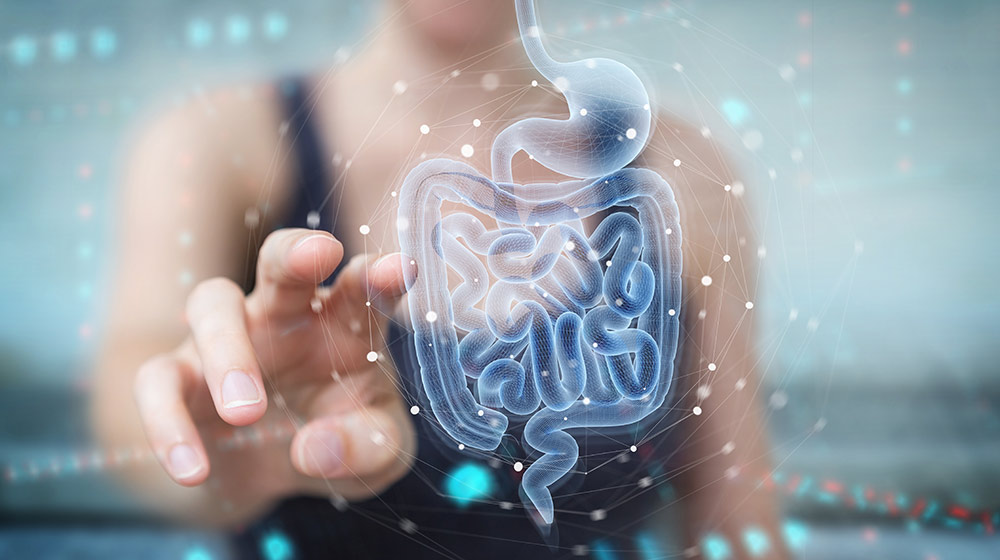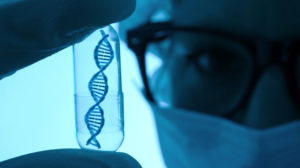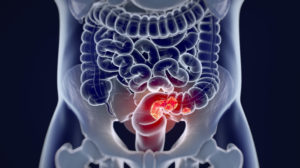The impact of medicinal and culinary herbs and botanicals has been studied extensively. The term might be new, but botanical biohacking has been used for centuries to optimize gut health. Gut health has a direct impact on our epigenome.
Read the original publication of this study here: Diet, the Gut Microbiome, and Epigenetics
Learn how to use botanical biohacking to support your epigenome
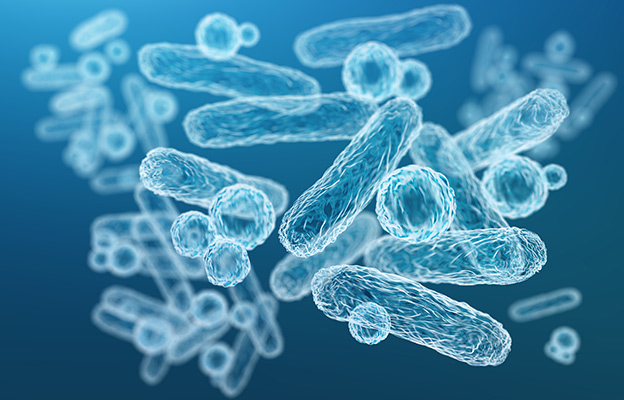
Diet, the Gut Microbiome, and Epigenetics
Microbiomes
When we are initially exposed to ‘bugs’ in infancy, such as through breast milk, it depends solely on the species found in our mother. Environmental factors come into play later on, when we can directly change our microbiome to benefit our health or increase our risk of disease.
In healthy humans, symbiotic and pathogenic microbes coexist without any problems, but an imbalance that can be induced by illness, poor diet, or antibiotics causes dysbiosis.
New dimensions of research have explored the impact of the microbiome in identifying biomarker patterns. Knowing how our microbiome behaves at a molecular level gives us great insights into what’s going on inside our bodies. Medical science is now looking at a more therapeutic approach to personalized medicine and how we can detect and influence the treatment of diseases, such as cancer.
Many new cutting-edge innovations in medicine point to the microbiome. Think of it as mission control for your mind and body. After all, Hippocrates once said, “all disease begins in the gut.” So it goes without saying that one of the first places you should look at to bio-hack your body is your gut.
Biohacking
Some things we now know about botanical biohacking and how it can support our epigenome:
“Health food” isn’t always healthy
We’re conditioned to understand that greens are 100% healthy for us. However, spinach contains oxalate, which can be harmful if you don’t have the metabolizing microbes to make it into a non-harmful substance. [1]
Your gut and brain are connected
Your microbiome produces or consumes a large majority of your neurotransmitters. Around 90 percent of all serotonin is, in fact, produced by our gut and not our brain. Therefore a toxic microbiome can lead to a leaky gut, chronic inflammation, a potential cause of depression and other chronic diseases. [2]
You might feel like you’re aging quicker with an unhealthy microbiome
If you suffer from joint pain and feel older, as a result, this might be your microbiome giving warning signals to your immune system.
An abundance of inflammatory molecules called lipopolysaccharide (LPS), made by some microbes, causes your immune system problems. This results in damage to your joints and other body parts.
But can herbs and other plants really give our microbiome a boost?
You’d typically think about probiotics in the form of live yogurt or a supplement. However, herbs can help cultivate microbiomes. A few examples include:
Chamomile is one of the most ancient botanical biohacking herbs known to help with gastrointestinal disorders, ulcers, and an anti-inflammatory. [3]
Ginger, a member of the Zingiberaceae family, has been studied much for its 400 plus compounds. This botanical agent has been used to treat various gastric ailments like belching, bloating, constipation, diarrhea, dyspepsia, epigastric discomfort, gastritis, gastric ulcerations, indigestion, nausea, and vomiting. [4]
Studies on black pepper revealed that the ancient herb promoted substantial shifts in gut bacteria. [5]
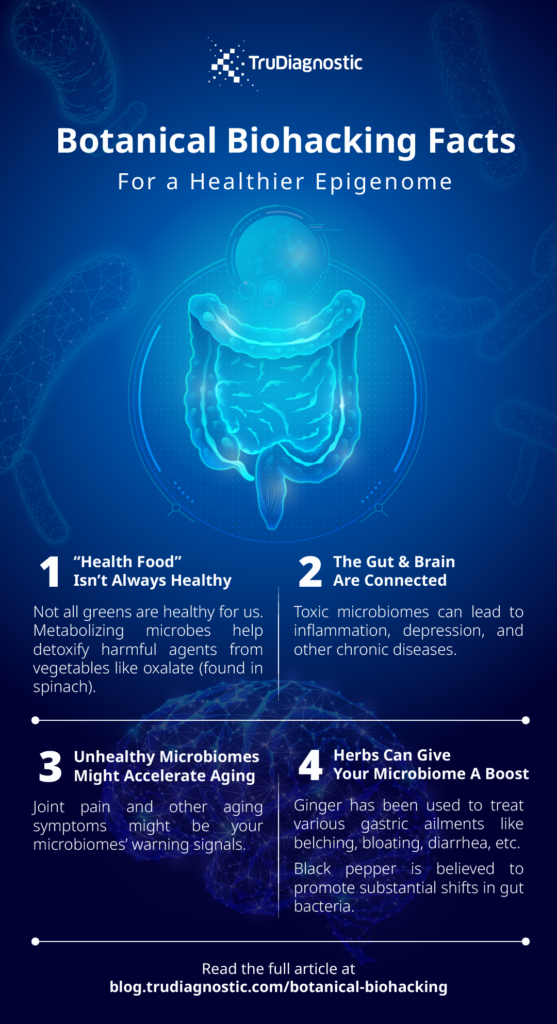
Takeaways:
- Your diet not only has the potential to make you feel good, but it can also influence epigenetic changes related to disease and can alter gene expression patterns.
- There is no longer any doubt that how we lead our lifestyles has an impact on our genes. Optimizing your health through diet, exercise, and behavior tell your genes how to behave.
- You can’t change your DNA, but you can induce changes that can affect your health. Uniquely, you can also pass some of these changes to subsequent generations, changing our species’ nature.
- So you don’t need to be a crazy genetic scientist to influence DNA structure, and you don’t need to wait for evolution; you can simply make a difference by changing what you eat and how you behave.
- Diet, the Gut Microbiome, and Epigenetics
- [1] Probiotics and Other Key Determinants of Dietary Oxalate Absorption
- [2] Microbes Help Produce Serotonin in Gut
- [3] Chamomile: A herbal medicine of the past with bright future
- [4] Ginger in gastrointestinal disorders: A systematic review of clinical trials
- [5] Prebiotic Potential of Culinary Spices Used to Support Digestion and Bioabsorption

